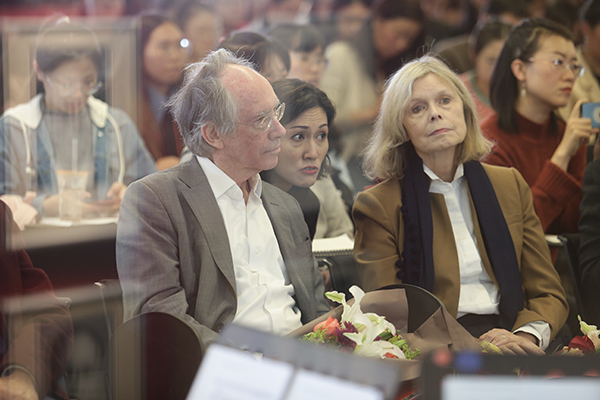A novel approach to humanity
By Yang Yang/Mei Jia | China Daily | Updated: 2018-11-25 11:00

He says he tries to unite the traditions of 19th-century realism and 20th-century modernism and postmodernism in his writing. That is to allow conversations between writers and readers within the text about the "very structure of the sentences of the paragraphs you are reading", one central part of the modernism revolution, and also to follow the realism tradition to develop complex characters in trying contexts.
He has just finished his latest novel, Machines Like Me, which will be published in April. The novel is set in an alternative 1980s London, in which computer scientist Alan Turing has achieved a breakthrough in artificial intelligence, enabling the book's protagonist, Charlie, to be able to buy and bring home a "male" synthetic human named Adam. The robot later falls in love with Charlie's girlfriend, Miranda, forcing the trio not only into the challenging scenario of an awkward love triangle but also into a murky moral dilemma: is Miranda being unfaithful to Charlie?
While the traditional menage-a-trois is an oft-used literary trope, one that involves a human couple and a robot is rare enough to be interesting and raises plenty of ethical questions about what humanity is: our outward behavior or our inner thoughts?
Perhaps that is partially behind the reason that, at the award ceremony, McEwan delivered a speech about artificial intelligence, related moral dilemmas and how novels can be "one of our best means of understanding ... the new kinds of conscious beings whose minds might begin to diverge from our own."
























